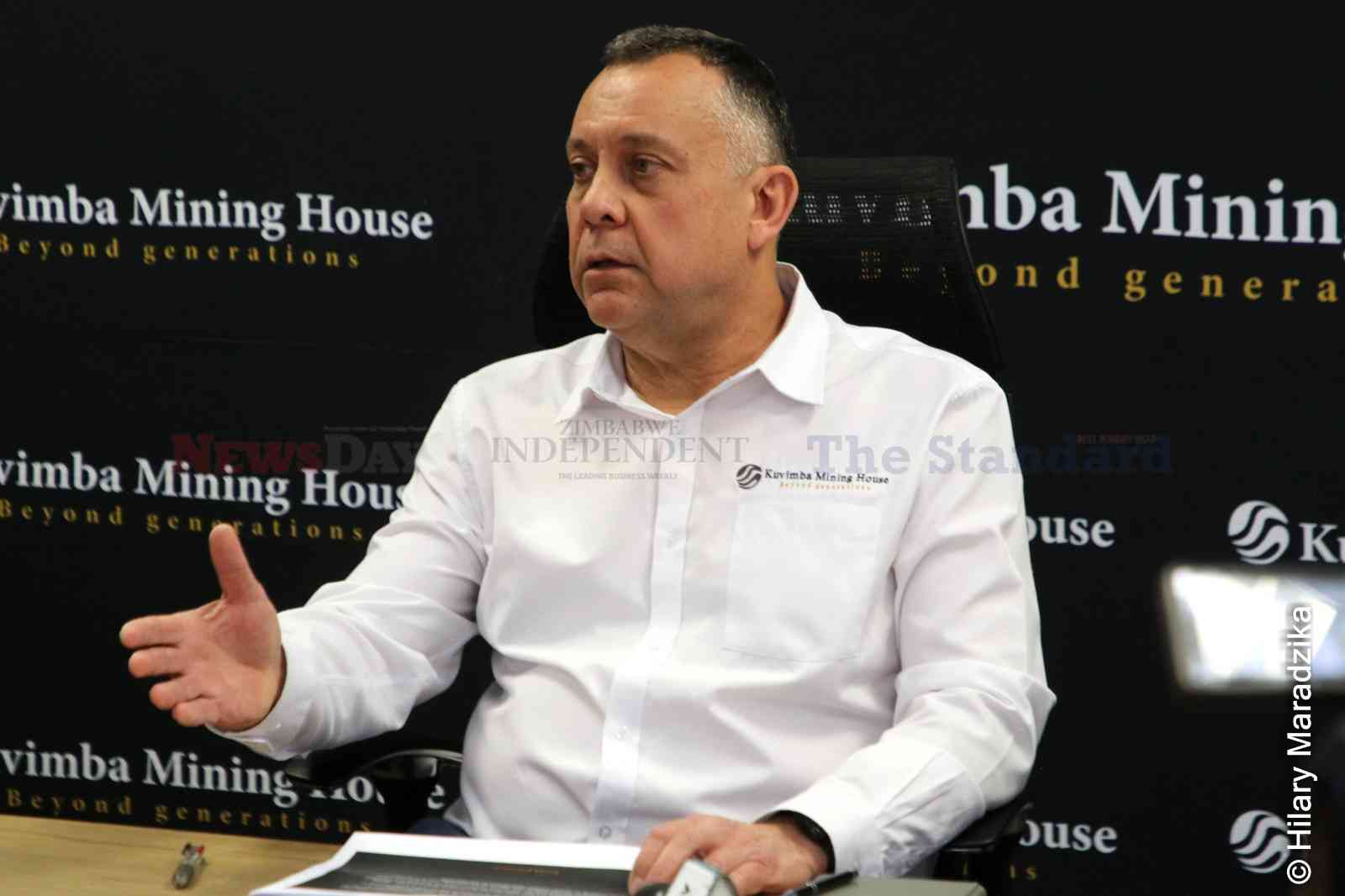
ZIMBABWE’s largest resources group Kuvimba Mining House (KMH) has stockpiled 750 000 tonnes of raw lithium at a time prices of the strategic mineral are softening on the international market, the Zimbabwe Independent can report.
Trading Economics, which tracks price trends of major commodities globally, attributes the decline in prices to a surplus of the “white gold” on the market — a scenario, which has affected major producers of the mineral, including Zimbabwe.
The southern African country hosts Africa’s largest lithium reserves and is among the top 10 producing countries in the world.
KMH, which runs a diversified range of assets including gold, platinum and nickel, also mines lithium at Sandawana Mine in the Midlands.
Preliminary exploration data indicates that Sandawana has reserves amounting to about 100 million tonnes of lithium.
The entity is one of the firms, which were given the right by the government to export unprocessed lithium as Zimbabwe takes bold steps to establish value addition chains in the industry.
KMH acting chief executive officer Trevor Barnard told the Independent this week the stockpiles were accumulated over time while the firm only started exporting lithium concentrates last year.
“Under Sandawana Mines, we have around 750 000 tonnes of stockpile that we have built up over time,” Barnard said.
- Piggy's Trading Investing Tips: De-risking mining projects
- Severe power outages loom: Zesa
- Water shortages hit Gutu-Mpandawana
- Karoi school clocks 2 years without electricity
Keep Reading
“And currently what is happening with that stockpile is that it is being sorted and sold, but the majority of it is being processed into lithium concentrate, which we will then sell into the international market,” he said.
Barnard highlighted that although the firm had so far exported 150 000 tonnes of lithium, exports were expected to improve next month.
“Exports have been slow to date. On the ore side, we have exported around 150 000 tonnes.
“And on the concentrate side, we started processing at the beginning of May. So, we will only see some significant volumes being exported from next month onwards.”
With Zimbabwe experiencing acute power shortages threatening the viability of the energy reliant industry, Barnard added that KMH was negotiating with international suppliers to ease the challenge.
Coupled with that, the firm also has short-term plans to set up solar farms to support its mining operations across the country.
“On the power side, although we are not in control of power supply, we are very close to Zesa and the Zimbabwe Electricity Transmission and Distribution Company to ensure that we get the best supply that is possible,” he said.
“And we are also going into projects at some of our mines to install some solar farms. And then also in certain cases, we are looking at negotiating specific power purchase agreements with international suppliers so that we can get uninterrupted power.
“So, the power really is something that we are trying to manage in various ways.” Barnard said.
KMH is among a motley of companies, whose shareholding was transferred to Mutapa Investment Fund (MIF) that was established last year.
MIF was formerly known as the Sovereign Wealth Fund.
Barnard noted that KMH would leverage its position as a member of MIF to boost its operations.
“So first of all, for us it is hugely in our benefit to be under the Mutapa Investment Fund because there is a huge amount of support from them to us as a mining house. So, the support at this stage is really about being supported by a government entity,” Barnard said.
“It is the sovereign wealth fund of Zimbabwe, Mutapa Investment Fund, and also making sure that we are close to the necessary government departments and ministries as required to assist us to implement our projects. So, from our perspective, it is hugely in our benefit to be part of the fund.”
KMH, whose shareholding structure has evolved over time, is wholly owned by the government.






